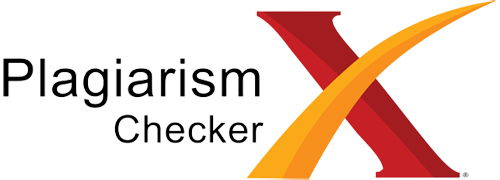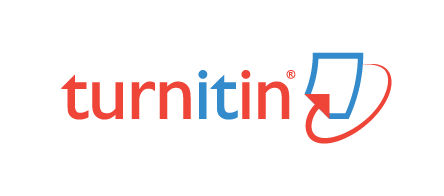Independent Curriculum Assessment and Evaluation in History Learning in Public High Schools throughout Barito Kuala Regency
DOI:
https://doi.org/10.30872/yupa.v9i1.4386Keywords:
assessment, evaluation, independent curriculum, history learningAbstract
This research uses a qualitative approach. Data collection and data sources were determined by purposive sampling. Data collection techniques were carried out using observation, interviews and documentation. Data analysis techniques are carried out through data collection, reduction, presentation and conclusion. Then, to obtain the validity of the data in this research, the researcher used triangulation techniques. The research results show that the State High School in Barito Kuala has implemented an independent curriculum. Learning and assessment have been carried out in an integrated manner. In history learning, teachers use assessments to measure the achievement of learning objectives. Three types of assessments are used: diagnostic, formative, and summative. The assessment results are used as a basis for assessing students' cognitive, affective, and psychomotor aspects, as well as reflective material for teachers to use in determining subsequent learning strategies.
Downloads
References
Budiono, A. N., & Hatip, M. (2023). Learning Assessment in the Merdeka Curriculum. Axioma Journal: Journal of Mathematics and Learning, 8(1), 109–123. https://doi.org/10.56013/AXI.V8I1.2044
GH, M., Sadriani, A., & Adminira, Z. (2023). Assessment of Merdeka Belajar Curriculum in Senior High School. Scientific Journal of Wahana Pendidikan, 9(6), 749–755. https://doi.org/10.5281/ZENODO.7815980
Halim, A. (2024). Effectiveness of Summative Assessment in Measuring Learning Outcomes of Grade IV Students of MIN 19 Bireuen. Journal of Comprehensive Science (JCS), 3(6), 2072. https://doi.org/10.59188/JCS.V3I6.776
Hamid, R. (2014). History Learning. Yogyakarta: Ombak.
Handayani, R., Minarti, I. B., Mulyaningrum, E. R., & Sularni, E. (2023). Realizing Pancasila Learner Profile through Problem Based Learning in Science Learning at SMPN 37 Semarang. Journal on Education, 6(1), 518–525. https://doi.org/10.31004/JOE.V6I1.2965
Hasna, S., Azizah, M., & Espiyati. (2023). Implementation of Non-Cognitive Diagnostic Assessment for Class III Students at Gayamsari 02 Public Elementary School, Semarang City. Didaktik: Scientific Journal of PGSD STKIP Subang, 9(2), 6037–6049. https://doi.org/10.36989/DIDAKTIK.V9I2.1390
Hermawan, M. D., & Farisi, A. (2023). Implementation of Differentiated History Learning at SMA Negeri 2 Banjarmasin. Prabayaksa: Journal of History Education, 3(2), 95–104. https://doi.org/10.20527/PBY.V3I2.10233
Jayanti, S. D., Suprijono, A., & Jacky, M. (2023). Implementation of Differentiated Learning in the Merdeka Curriculum in History Subjects at SMA Negeri 22 Surabaya. EDUKASIA: Journal of Education and Learning, 4(1), 561–566. https://doi.org/10.62775/EDUKASIA.V4I1.304
Kasman, K., & Lubis, S. K. (2022). Teachers’ Performance Evaluation Instrument Designs in the Implementation of the New Learning Paradigm of the Merdeka Curriculum. Journal of Education: Journal of Research Results and Literature Review in the Field of Education, Teaching and Learning, 8(3), 760–775. https://doi.org/10.33394/JK.V8I3.5674
Mardiani, F., Subiyakto, B., & Safitri, M. (2024). Student’s Interpersonal Communication Skills in Learning History of the 21st Century. HISTORIA: Journal of History Education Study Program, 13(1), 293–304. https://doi.org/10.24127/HJ.V13I1.10658
Miles, M. B., & Huberman A. M. (1992). Qualitative Data Analysis: A Sourcebook of New Methods. Jakarta: University of Indonesia. UI-Press.
Minarti, I. B., Dewi, L. R., & Kurniawati, A. (2023). Implementation of Authentic Assessment of Biology Learning in the Merdeka Curriculum in State High Schools in Batang Regency. Journal on Education, 5(4), 17576–17586. https://doi.org/10.31004/JOE.V5I4.4291
Raihanah, S., Rochgiyanti, & Syaharuddin. (2024). Implementation of Merdeka Curriculum in History Learning at Senior High School Negeri 1 Alalak. Santhet (Journal of History Education and Humanities)Santhet (Journal of History Education and Humanities), 8(1), 943–954. https://doi.org/10.36526/SANTHET.V8I1.3860
Sardiman, A. M. (2012). Learning History and Heroic Values. History Education Paper, Faculty of Social Sciences, Yogyakarta State University, 1–8.
Sriwati. (2012). Contribution of Rice Farming Products to the Education of Farmers' Children in Andaman II Villages 1980-2009. (Bachelor Thesis, Lambung Mangkurat University).
Sriwati, S. (2023). Dilemma of Misconceptions in Indonesian History Textbooks. Educative: Journal of Educational Sciences, 5(2), 768–775. https://doi.org/10.31004/EDUKATIF.V5I2.4801
Sugiarto, S., Adnan, Aini, R. Q., Suhendra, R., & Ubaidullah. (2023). Training to Implement Diagnostic Assessments in Indonesian Language Subjects for Elementary School Teachers in Taliwang District. Karya: Journal of Community Service, 3(1), 76–80. https://jurnalfkip.samawa-university.ac.id/KARYA_JPM/article/view/226
Sugiyono. (2010). Educational Research Methods Quantitative, Qualitative and R&D Approaches. Bandung: Alphabeta.
Syifa, G. N., Putro, H. P. N., & Mardiani, F. (2024). Differentiated Learning Process in History Subjects. Journal of Learning Research and Innovation, 4(1), 273–282. https://doi.org/10.51574/JRIP.V4I1.1278
Yogi, A. (2022). Learning and Assessment Guide for Early Childhood Education, Primary and Secondary Education. Jakarta: Educational Standards, Curriculum and Assessment Agency, Ministry of Education, Culture, Research and Technology.
Downloads
Published
How to Cite
Issue
Section
License
Copyright (c) 2025 Sriwati, Wisnu Subroto, Melisa Prawitasari, Fitri Mardiani

This work is licensed under a Creative Commons Attribution-ShareAlike 4.0 International License.













